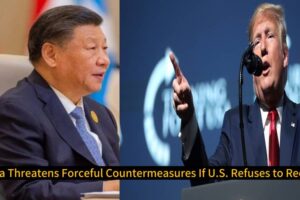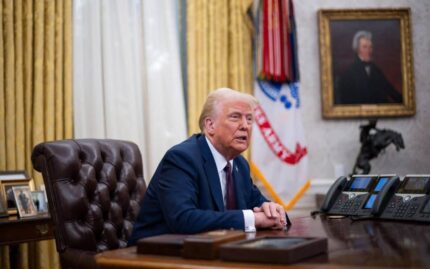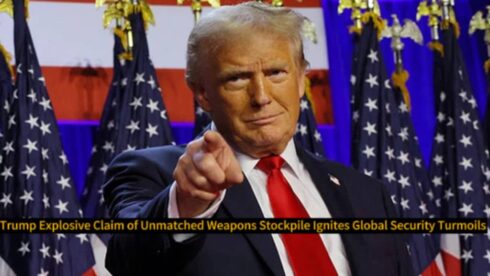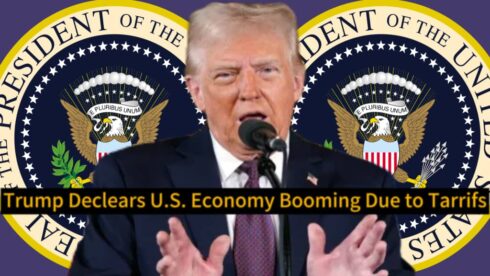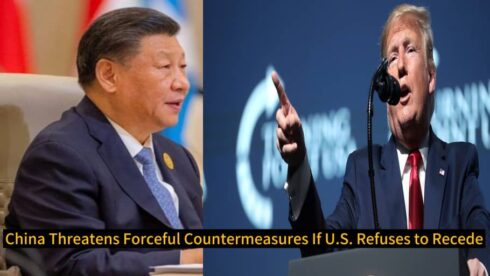President Donald Trump is considering military strikes against Mexican drug cartels, according to Defense Secretary Pete Hegseth. The discussions come amid escalating cartel violence and increasing fentanyl-related deaths in the U.S. Hegseth revealed that Trump has instructed him to prepare all necessary resources to combat the cartels, which Trump has labeled as foreign terrorist organizations.
Trump’s Plan to Target Cartels With Military Force
Defense Secretary Pete Hegseth confirmed that Trump is open to using military assets, including airstrikes and special forces, to dismantle drug cartels operating in Mexico. During an interview with Fox News’ Brian Kilmeade, Hegseth emphasized that all options are on the table to combat cartel violence.
“If we’re dealing with foreign terrorist organizations that are specifically targeting Americans on our border, all options will be considered,” Hegseth stated. His remarks suggest a significant shift in U.S. policy toward a more aggressive stance against organized crime groups operating across the southern border. He also noted that the military is adjusting its defense posture to better protect U.S. sovereignty from threats originating in Mexico.
Border Violence Escalates as Cartels Fire on U.S. Agents
The urgency of Trump’s proposed actions was underscored by a recent violent incident at the Texas-Mexico border. On Monday, suspected cartel members opened fire on U.S. Border Patrol agents monitoring a known drug and human smuggling corridor. The agents returned fire into Mexico, though no injuries were reported.
This is not an isolated incident. Border clashes between U.S. law enforcement and heavily armed cartel members have become more frequent in recent years. Cartels are known to smuggle drugs, illegal weapons, and human trafficking victims across the border, posing a direct security threat to the U.S. “Should there be other options necessary to prevent the cartels from continuing to pour people, gangs, and drugs into our country, we will take that on,” Hegseth warned.
Fentanyl Crisis and Trump’s Crackdown Strategy
One of the key drivers behind Trump’s proposed military action is the fentanyl crisis. The synthetic opioid, largely produced in Mexico using ingredients from China, has become the leading cause of overdose deaths in the U.S. According to federal data, fentanyl-related deaths have nearly tripled since 2019, rising from 31,000 to 87,000 in 2023. In 2022, fentanyl poisoning was the leading cause of death for Americans aged 18 to 45.
Trump has pledged to impose a full naval embargo to prevent illicit drugs from reaching U.S. shores. “I will deploy all necessary military assets, including the U.S. Navy, to impose a full naval embargo on the cartels,” Trump declared in 2023. He also vowed to use special forces, cyber warfare, and other covert operations to dismantle cartel networks and their infrastructure.
Economic Pressure on Mexico, Canada, and China
Beyond military action, Trump’s administration is also implementing economic measures to pressure countries linked to the fentanyl crisis. White House Press Secretary Karoline Leavitt announced that a 25% tariff will be imposed on Mexico and Canada, while a 10% tariff will be placed on China, effective February
Leavitt justified the tariffs by pointing to these nations’ perceived failures in cracking down on illegal drug production and immigration. “The President will be implementing a 25 percent tariff on Mexico, a 25 percent tariff on Canada, and a 10 percent tariff on China for the illegal fentanyl they have sourced and allowed to be distributed into our country,” she stated. While the real number of fentanyl-related deaths is in the hundreds of thousands rather than millions, the crisis remains a top priority for Trump’s administration.
As cartel-related violence and fentanyl trafficking continue to threaten American lives, Trump’s proposed military action and economic measures mark a drastic shift in U.S. policy. Whether these strategies will be implemented and how Mexico will respond remains to be seen.



